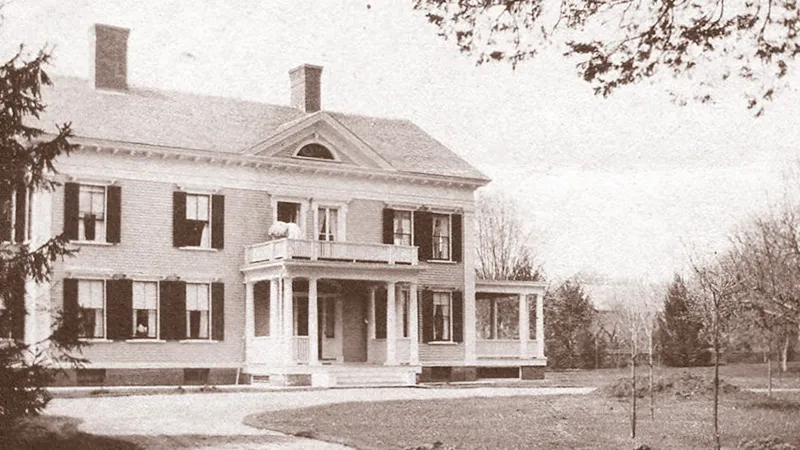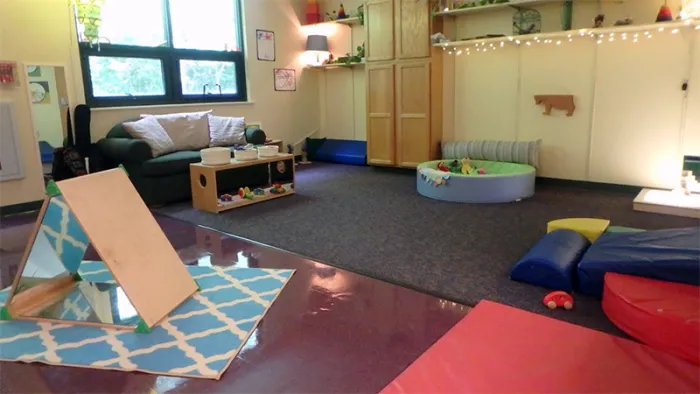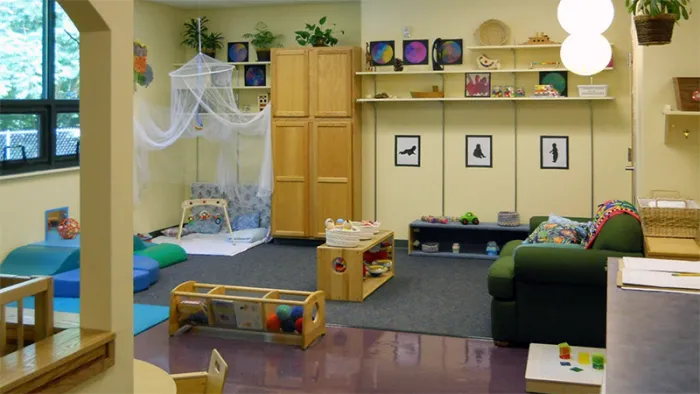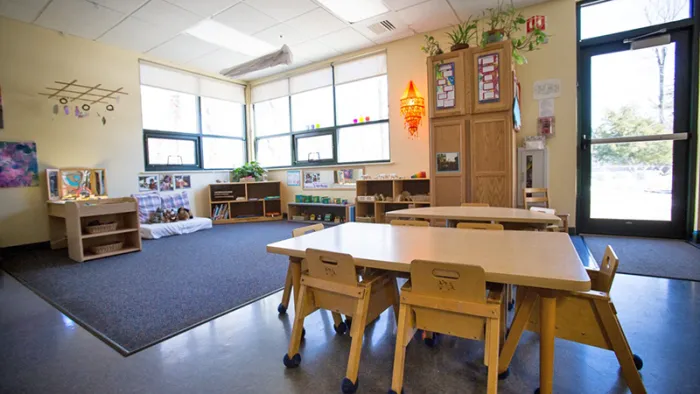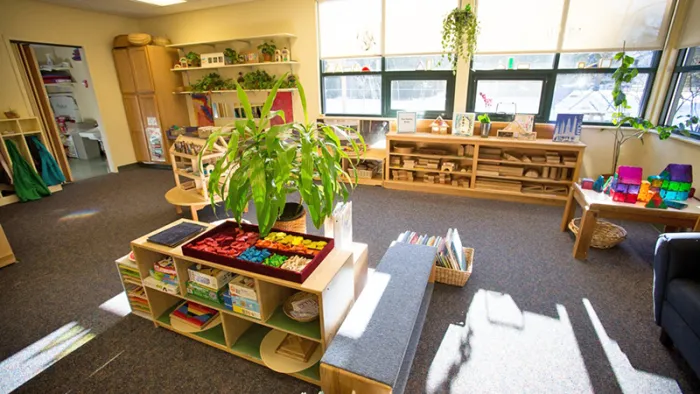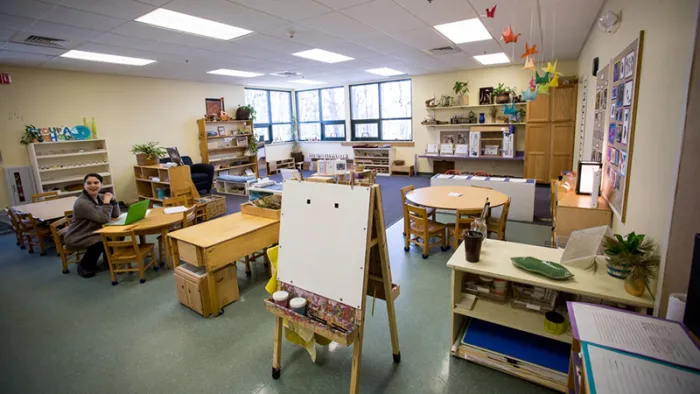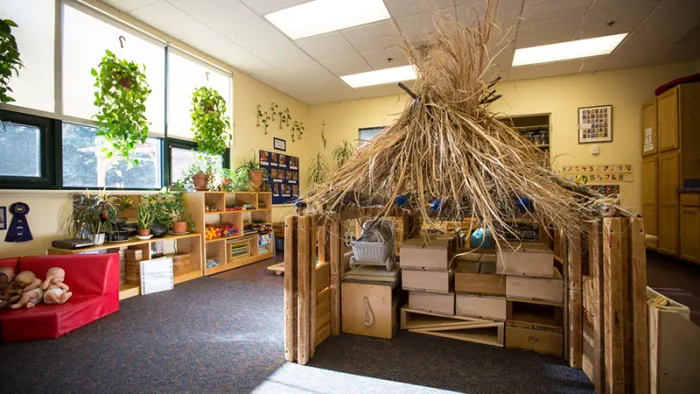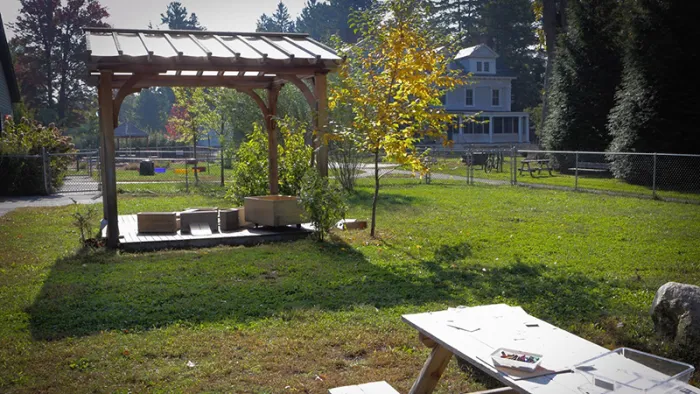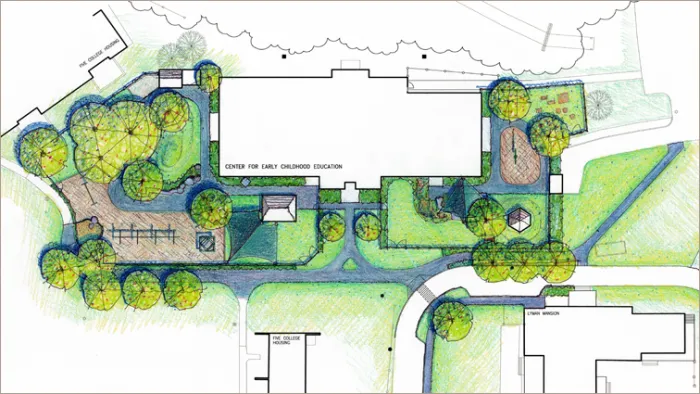About the Center

The Smith College Center for Early Childhood Education at Fort Hill offers full- and part-time early education and child care in Northampton for children infancy through preschool. The program enrolls approximately 80 children, about half of whom are affiliated with Smith College.
The mission of the program is to provide exemplary early education and care for young children; to offer a laboratory for research and fieldwork for college students and faculty; and, to support the child care needs of families.
Smith College students participate in the program in a variety of ways. Students work directly with children as members of classroom teaching teams through Student Financial Services, and complete observations and field work for courses in the departments of education and child study, psychology, art, engineering and the landscape studies program.
The facility, completed in August 2005, is located at Fort Hill on Lyman Road, about a half-mile from the center of Northampton, Massachusetts.
The teachers at Fort Hill are dedicated and responsive to children’s individual and group needs and work collaboratively with parents to develop a community of learners. Teachers thoughtfully plan the classroom environments and the curriculum is child-centered, emerging from children’s interests and based on a deep respect for children’s potential.
Fort Hill Facility
The program moved from the historic home and apartments on the site to a new facility in August of 2005. The building was designed to provide an environment that offers opportunities for interaction between and among teachers, children and parents. The transparency of the doors and windows extends an invitation to encounters with the playgrounds and with the interior environments and members of the community.
The building program, conceptual floor planand exterior were designed by Kuhn Riddle Architects. The detailing, engineering and construction were by O’Leary Company and the interior finishes were selected and coordinated by the interior design firm of Lukas Design Interiors.
There are three adjoining preschool classrooms, an infant room and three adjoining toddler rooms. The spaces are designed to offer opportunities for encounters and interactions. The interior doors are glass and many windows provide views to the outside. There is a main “Common” where groups gather for gross motor activities and block play, a smaller Common in the infant/toddler wing for more intimate gatherings, and a studio that supports extended investigations and explorations with materials.
Two fenced playground areas were developed in collaboration with Smith College faculty and students. The playgrounds include structures and equipment as well as a naturalized landscape that reflects the history of the site.
Playgrounds
The outside space at Fort Hill is carefully designed and is an integral part of the program. Every classroom has access to the playground; the infant/toddler classrooms have a space designed especially for our youngest children and the preschoolers have a space for more challenging experiences. Children go outside every day—rain or shine! Our motto is the Norwegian adage “There's no such thing as bad weather, only bad clothing!”
The playgrounds feature plantings and stones, tricycle paths, gazebos, swings, sand, climbers, musical instruments, and spaces for reading and quiet activities. Large lawn areas leave room for spontaneous and cooperative games and parachute play.
The Playground Project began in the spring of 2005 when a committee was formed to plan for developing the playgrounds at the new facility. The committee, which included parents, teachers and Smith faculty members, worked with Denig Design Associates to plan a playground that reflects the rich history of the Fort Hill site and combines structures with naturalized elements.
The gardens in the playgrounds are developed and maintained by Smith College students participating in the Praxis internship program. Smith students have worked closely with the Botanic Garden and Fort Hill staff to implement landscape architect Nancy Denig’s (Smith ’68) design and to bring their own creativity to the site.
Contact Center for Early Childhood Education
Fort Hill
28 Lyman Road
Northampton, Massachusetts 01063
Phone: 413-585-3290 Email: cece@smith.edu
Director: Jennifer Godlesky
413-585-4329
jgodlesk@smith.edu
Assistant Director: Laurie DeMello
413-585-4280
ldemello@smith.edu
Office Coordinator: Lori McKenna
413-585-3290
lmckenna@smith.edu
